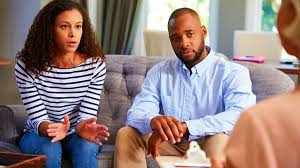
Introduction
It’s fair to say that couples therapy in the UK is, at the time of writing, something of a hodgepodge of agency-based services and private providers, including NHS, voluntary and third-sector organisations, and therapists working in private practice. Not that that’s necessarily a bad thing; more to say that the state of play of couples therapy in the UK is similar to what individual therapy was some 25+ years ago, when there was less in the way of professional regulation and standardisation in practitioner training. This blog post is intended to provide some orientation for couples – quite possibly in a state of urgent need – seeking relationship counselling in what can be a bewildering landscape of service provision.
To best navigate said landscape, it helps to know something about the registration and accreditation of counselling and psychotherapy practitioners in the UK. This is itself a consideration riven with potential for further bewilderment – not the kind of thing you need when you’re struggling and wanting to find reliable professional support fast. For such purposes, I refer you to another blog post, where, in as few words as possible, I endeavour to provide an introduction to the leading professional bodies for counsellors and psychotherapists in the UK.
Avenues for accessing couples therapy in the UK
NHS: Some GPs may be able to provide referrals to relationship counselling within Improving Access to Psychological Therapies (IAPT) services, although availability can vary and waiting lists are usually long. Provision is often restricted to couples where one or both partners present with a psychological disorder, such as depression or anxiety, and where the relationship is deemed to be a contributing factor in recovery.
Voluntary and Third Sector: Independent organisations in this sector play a major role in providing relationship support, often with a broader remit than the NHS. Of these, Relate is the largest provider, offering relationship counselling across the UK through local centres and online services.
Employee Assistance Programs (EAPs): Some employers offer EAPs that include access to counselling services, including couples therapy.
Religious Organisations: Some religious organisations offer marriage and relationship counselling services.
Private Practice: The majority of couples therapists are practitioners who qualified initially as individual counsellors or psychotherapists. Having built up clinical experience working with individuals, some practitioners progress to post-qualifying courses in couples work.
In the West Country where I practice, David Slattery’s Centre for Relational Couples Therapy is a leading provider of couples therapy training for qualified practitioners, emphasising a relational-psychodynamic approach to couples work. Equivalent courses will be available in other parts of the country. The UK’s foremost provider of psychoanalytic couples therapy training is Tavistock Relationships (TR) in London, which offers qualifying courses to PG Dip. and Master’s level. Relate is another bona fide training organisation, its primary pathway for both volunteer and employed counsellors being a two-year Diploma in Relationship Counselling.
Couples seeking therapy in the private sector are often able to find therapists who align with their specific needs and preferences regarding therapeutic approach, scheduling, and location. However, private therapy can be expensive, posing a significant barrier for those who cannot afford it.